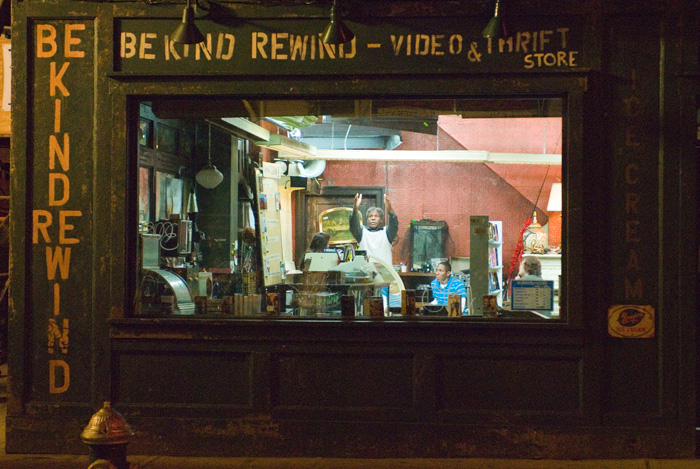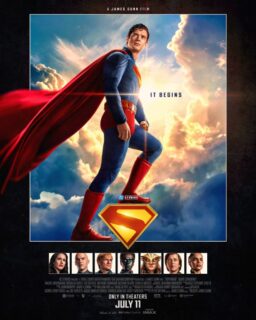Q. I was surprised by your review of “Blindness.” I’ve not seen the film yet; I am currently reading the novel, with 50 pages left to go. It is a stunningly good work. I’ve not read any of Jose Saramago’s work before, but I will be reading more in the near future. I plan to see the film. John Zulovitz, Columbus, Ohio
A. One of the commenters on my blog asked how a film could be so true to a great novel and yet be an unsuccessful film. I think it involves the POV. In the novel, we are imagining being blind, but in the movie, we are seeing blind people.
Q. What do you think of the idea of recommending someone “wait for video” to see a movie? What the heck is that supposed to mean? Chris Rowland, Browns Mills, N.J.
A. Must be something in the air. A. Braunsdorf of Lafayette, Ind., asked the same question. If you’re told to “wait for the video,” interpret that as “don’t see it.” Any movie worth your time is worth seeing in a theater, if you can. But certainly use and appreciate video as a way to view good movies you want to catch up on. It’s two hours of your life, no matter where you park your butt. “Wait for the video” should always mean “see it.”
Q. Do top-rank directors like Scorsese and Demme consider their films successful if they receive widespread critical acclaim, yet fail at the box office? Or is a profitable film a necessary earmark of success? By the same token, does it really matter to them if their films are critically lambasted, yet are huge box-office hits? Conrad Gurtatowski, Crown Point, Ind.
A. Great directors believe their films are a success if they are satisfied with them. So they should. You can never be a great artist if you think critics or the box office know better than you do.
Q. I had an odd movie-going experience today. The Clearview Chelsea, in one of NYC’s gay neighborhoods, was showing “The Exorcist” as a camp classic mainly for its gay audience. A drag queen comedian “hosted” it, which means she sat with a microphone and made loud, obnoxious jokes throughout the movie (OK, some of which were kinda funny), and the audience was encouraged to scream out favorite lines and clap and cheer throughout.
I wasn’t aware it would be like this. I’ve been at the Clearview before for classic movies and it wasn’t, although I am well aware it’s about the gayest movie theater in New York. I regret having gone. Strangely, some audience members actually didn’t react as rudely and obnoxiously as the “host” expected them to, and actually became absorbed and involved in the movie. “The Exorcist” is not a movie you can mock. It doesn’t work with audience participation, and it can’t function well as camp, except among the most adolescent and jaded viewers. The theater is showing “Psycho” the same way next week. I propose that the managers be arrested and beaten with canes. Agatha Ella Jadwiszczok, New York City
A. How can theater operators who know anything about movies encourage such mutilation of the experience of great films? What in the hell is camp about “The Exorcist” or “Psycho” (1960)? We live at a time when intelligence and taste are attacked as elitism. The Chelsea is training audiences to be ignorant. But I don’t agree with beating the managers. They should be sentenced to walk up and down in front of the theater wearing large sandwich boards with your letter and my response reproduced on them.
Q. I just read your review of “Body of Lies,” and you reference the video surveillance from “Black Hawk Down.” The video provided to the on-scene commander (Sam Shepard) was provided by the aircraft I was trained to fly, the Navy P-3 Orion, and was provided in part by myself and my aircrew, who were forward deployed to Somalia at the time. Watching the events unfold while airborne and in real-time is something that will follow me to the grave. I still struggle.
The technology is fairly simple, a gyro-stabilized camera designed for use in reconnaissance satellites, retro-fitted to the aircraft. It worked well then and is still in use in today’s battlefields.
Name withheld, Commander, U.S. Navy
A. Awesome.
Q. I know that movie critics are left-leaning but if you are going to take your profession seriously, you would do well to admit that you have a bias (if not outright hostility) toward traditional, conservative values. Your refusal to review films such as “Fireproof” and “An American Tale” are the most recent evidence of disregard for any movie that doesn’t promote the philosophy of the left. You should be honest about this in the form of a disclaimer. I used to make my decisions on what movies to see based on your reviews. I can no longer rely on you as an objective source.
Garth Thoresen, Eagan, Minn.
A. As a liberal, of course I believe in traditional conservative values. Name me a traditional conservative value liberals do not share. For example, we both abhor torture. I learn “Fireproof” was produced by the media arm of the Sherwood Baptist Church of Albany, Ga. If they had sent a DVD, I would have been happy to view it.
My editor at the Sun-Times tried to help on “Fireproof” and tells me: “‘Fireproof’ opened in Chicago a few weeks ago. I tried several times to get screening info from the national publicists (it didn’t have a local PR rep) but never heard back. Not by e-mail, nor by phone (I sent/left messages via both routes).”
Ebert again: Metacritic.com lists only six reviews (average score 28/100), none from Chicago.
I wanted to review “An American Carol” (not “Tale”), a satire about Michael Moore. I enjoyed the anti-Moore doc “Michael and Me.” When the distributors announced a policy of not screening “An American Carol” for the press, I requested a DVD. They declined. I would have gone to a theater to see it but am running as fast as I can to cover the flood of new releases.
Now it has failed at the box office and looks like a dead letter. Reviews, even negative reviews, would have helped it. Since it opened nationally without (as far as I can tell) a single review on opening day, didn’t that send a loud “no confidence” message from the distributor?
Q. You should be ashamed of yourself for the review of the movie “W.” You CLEARLY expressed which side of the political spectrum you are on. As a professional, you are obligated to rate movies fairly. I will no longer take your reviews seriously. Is there any wonder why the film industry is in decline? Regular citizens could care less about Hollywood’s views or your views on politics; they just want to go watch a movie that movie critics grade fairly to give them a break from the everyday grind. You obviously let us down on this one.
Jason Kerr, Lorton, Va.
A. I am pleased that I was CLEAR. I am a liberal and have made that clear during my entire career. My review was a fair reflection of the movie you would be going to see. How can anyone watch “W.” and not have an opinion reflecting political beliefs? What impressed me, as most critics have agreed, is that Oliver Stone stuck to the widely agreed-upon facts and did not tilt his film leftward.












